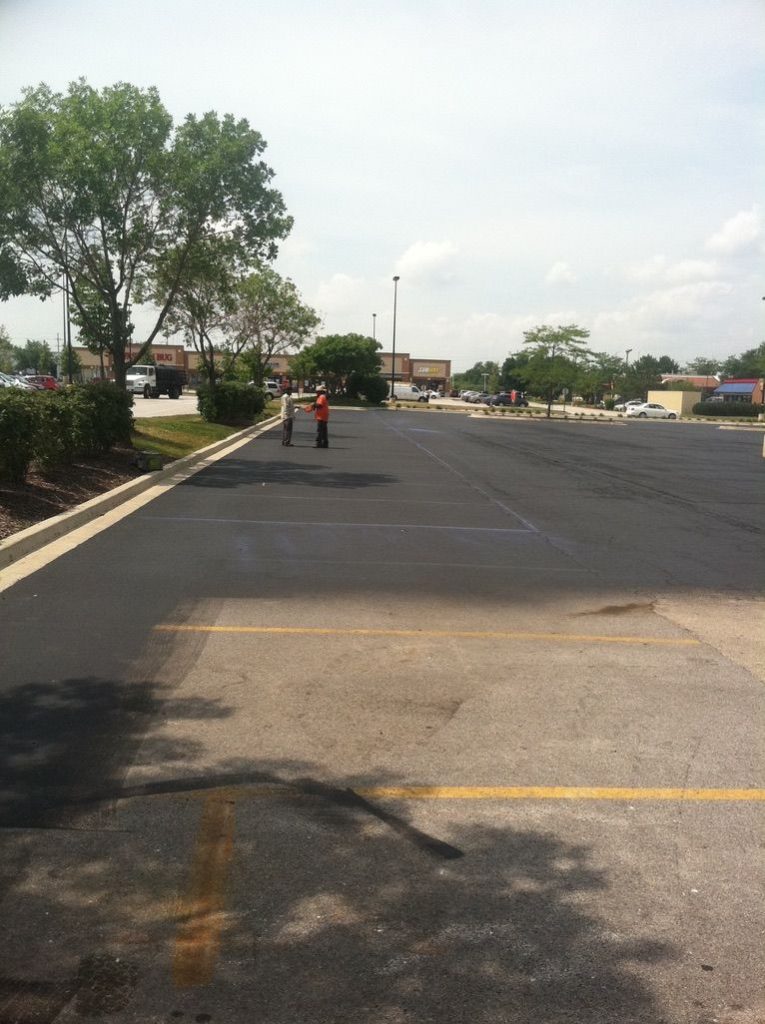Asphalt pavements are economical, rapid to install, and visually appealing. They can also have long lives if they receive adequate maintenance, including applications of asphalt sealcoating. However, it is critical that your contractor incorporate aggregates in the sealant mix.
What Are Aggregates?
An aggregate is a hard, inert material that is mixed with a cementing material or binder. Aggregates are incorporated into the mix to form plaster, mortar, or concrete, but they are also used in Chicago sealcoating mixes.
What Aggregates Are Used in Asphalt Sealcoating?
Silica sand is the most common aggregate used by an asphalt sealcoating company when preparing a sealcoat mix. Crushed boiler slag is also popular with some sealcoating contractors.
1. Silica sand is essentially quartz that has been broken into tiny grains by wind and water.
2. Crushed boiler slag is a by-product that is obtained from coal-fired plants.
Why Is It Important to Incorporate Aggregates in Asphalt Sealcoating Mixes?
Incorporating aggregates will provide many advantages when sealcoating Chicago pavements. Unfortunately, a novice or unscrupulous contractor may not use the correct amount of aggregates, or they may skip them completely. Unless a sealcoating company mixes in the correct type and amount of aggregates, you will not receive the following benefits.
1. Adding aggregates to a sealcoating mix enhances the pavement’s traction. This helps make the pavement safer for pedestrians, cyclists, and drivers.
2. Aggregates help conceal hairline cracks or other minor flaws. This makes the surface appear more even and smoother.
3. Aggregates enhance the bond between the sealant and the pavement. A strong bond is essential for the longevity of the sealcoating.
4. Aggregates make sealcoats tougher so that they can better resist wear from traffic. This can prolong the sealant’s life.
5. Aggregates play a role in the sealant’s drying time. The sealant can dry faster because there is less water in the mix, but aggregates also act as regulators to keep the sealant from drying too quickly.
Is Silica Sand or Boiler Slag the Better Aggregate for an Asphalt Sealcoating Company to Use?
Either choice will provide virtually identical benefits. Therefore, it is more important that the aggregate chosen has the right qualities.
1. Aggregates must be clean and free of contaminants.
2. Aggregates must be of the size recommended by the sealant manufacturer.
3. Sealcoating contractors must add the correct amount to the mix. Sealant manufacturers specify how much aggregate, sealant concentrate, and water should be mixed together.
4. Some types of sand should never be incorporated into the mix. For example, foundry spent sand, sand recycled from a steel sandblasting operation, and unwashed beach sand should not be used.
When you need superior paving services, contact Black Hawk Paving. Our services include asphalt sealcoating, asphalt paving and repair, concrete flatwork, parking lot striping, excavation and grading, car stops, hot crack sealing, traffic signage, asphalt fabric, sewer repair, concrete curbing, pavement markings, and asphalt milling. We have an exemplary reputation for workmanship, service, and professionalism. If you would like to request a free job quote, call 708-479-0400, fill out our online form, or email Info@BlackHawkPaving.com.


